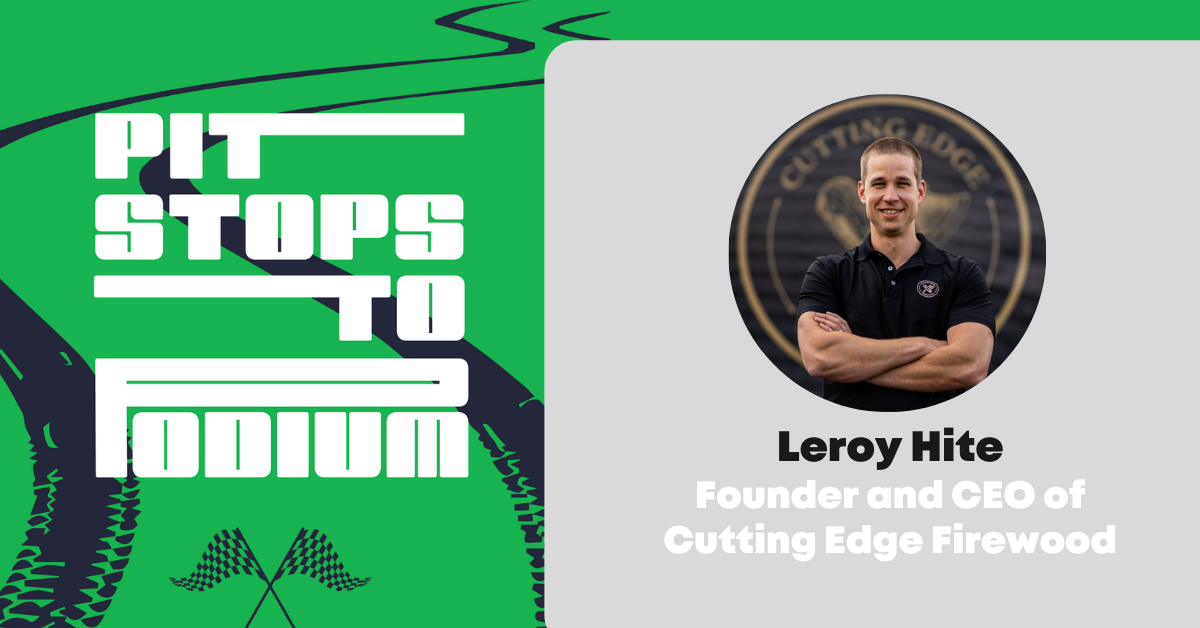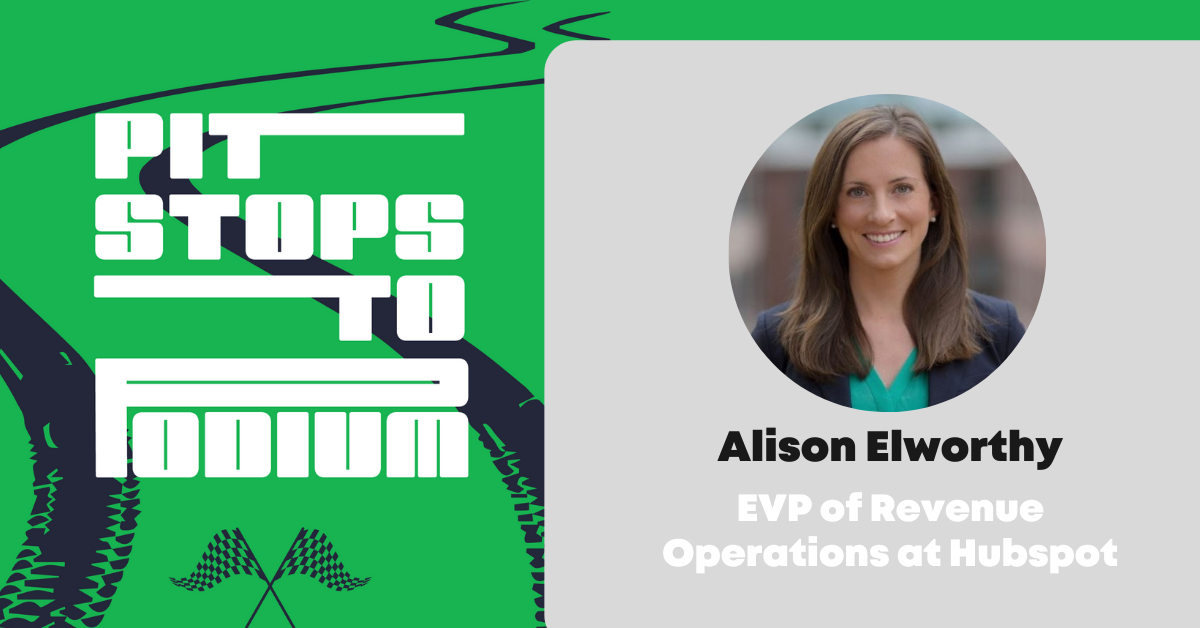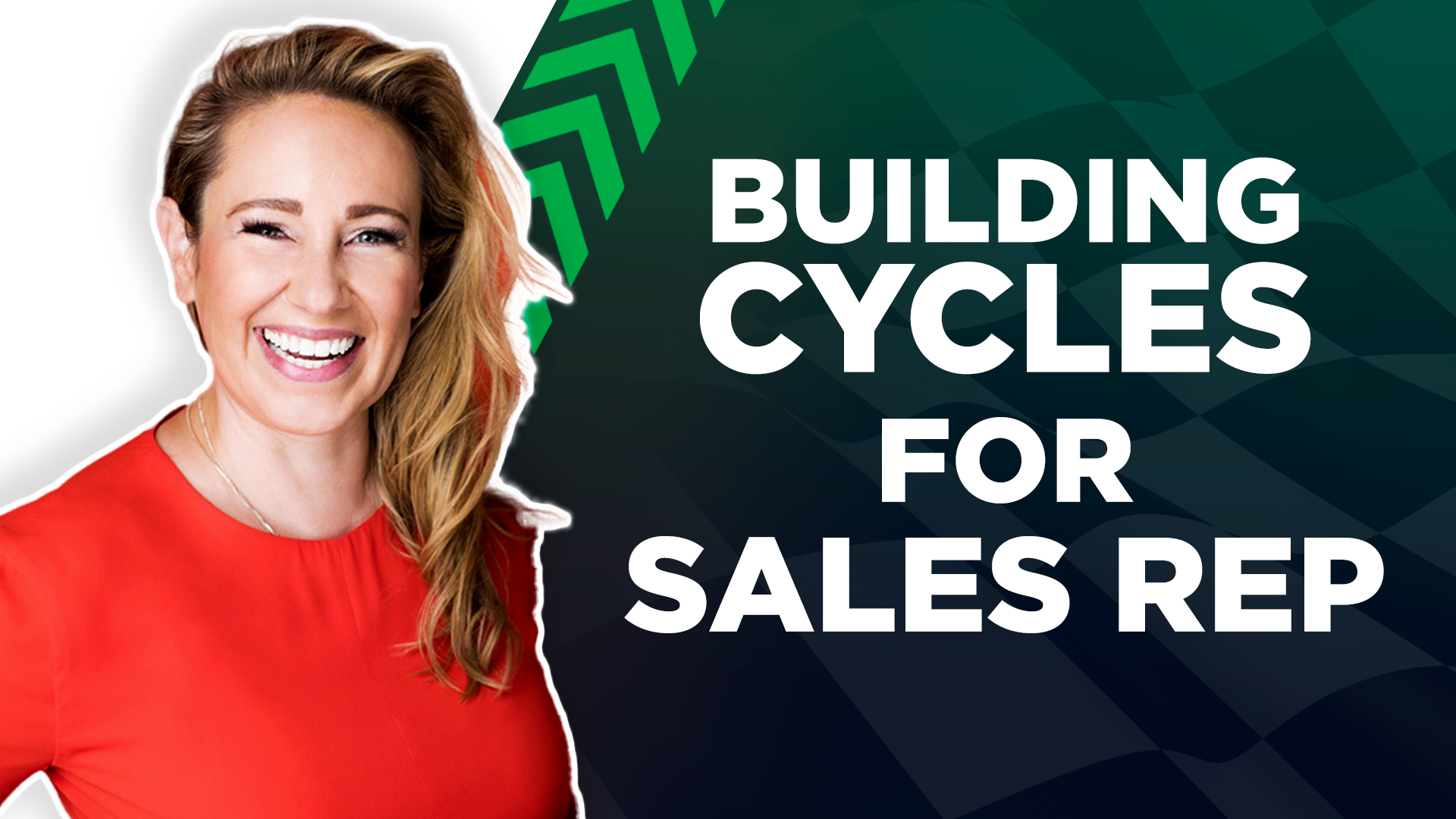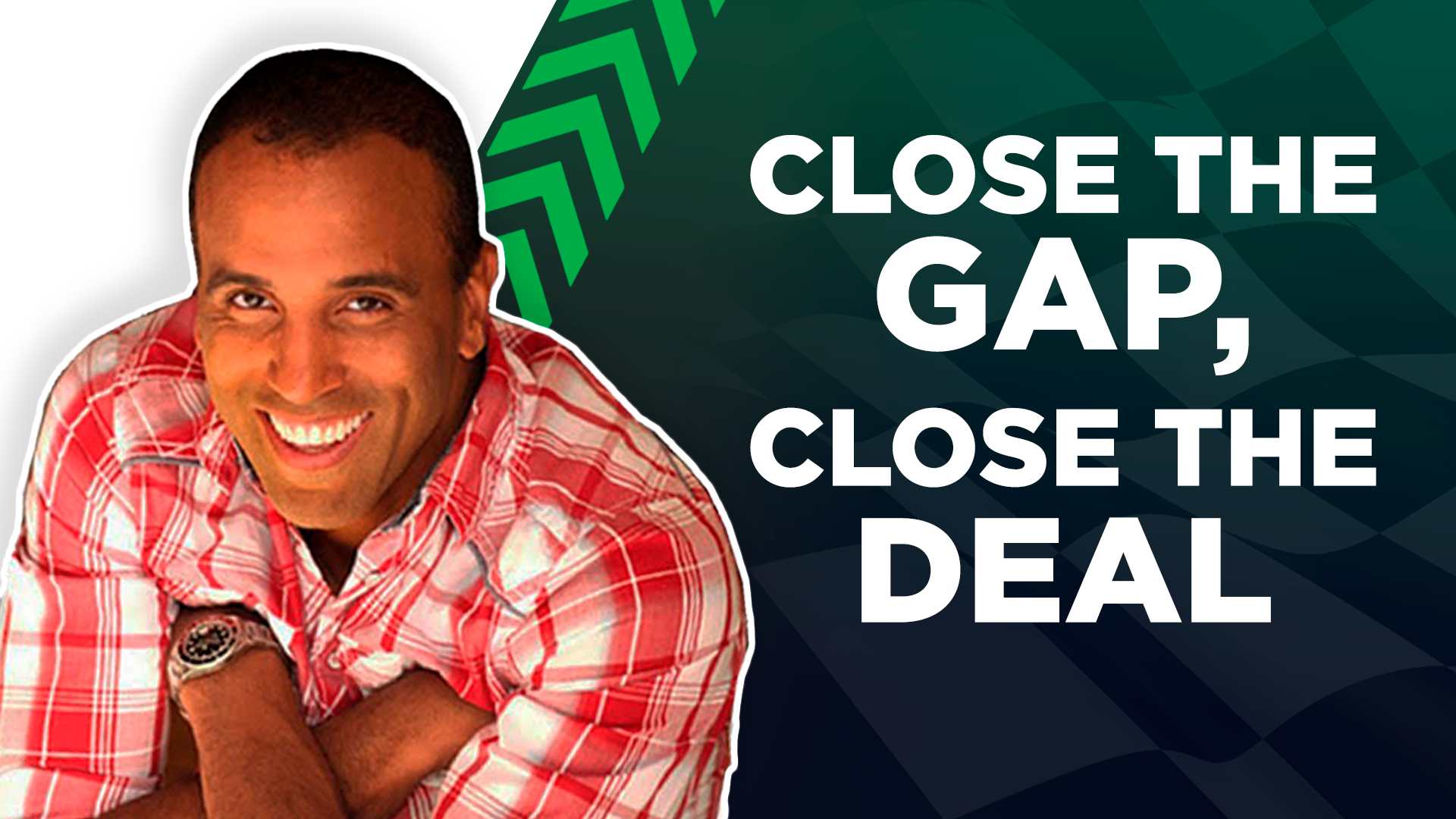Table of Contents
In Episode 35 of the B2B Podcast, Pit Stops to Podium, Leroy Hite, Founder, and CEO of Cutting Edge Firewood, speaks on the value of the customer journey, how to meet customer expectations, and how to recover from a bad customer experience. Listen to learn more about how to create a “delightful” customer experience within a direct-to-consumer product.
Pitstop Highlights
The Importance of the Customer Journey
The value of the customer journey is often neglected, and it’s important to recognize its importance when improving on your customer experience. The start to finish journey of a customer can often determine the type of experience they have. It’s all-encompassing, and according to Leroy “the reason for existence” of a company.
Within the customer journey, everything is important. Thought execution is required for every detail starting from the very beginning to the very end. Mapping down the journey is integral in making sure you’re interacting with the customer at every stage.
Meeting vs Exceeding Customer Expectations
There's a significant difference between meeting versus exceeding customer expectations, and while it may not look obvious at first, it will show within your customer experience. A few factors Leroy mentions in making sure expectations exceed is to focus on your service, branding, and product quality. If those three are strong, there's a chance that will show in exceeding customer expectations.
Deliver exceptional customer service, establish a strong brand, and produce high-quality products.
Addressing Negative Customer Experiences
Companies are bound to make mistakes at least once. So how do they recover and prevent it from happening again?
Leroy’s tip: Communicate with the customer that you acknowledged the mistake and that you are willing to fix it. Address the needs of the customer, make sure that their complaints are warranted, and offer the best solution you can find.
Anticipating customer needs are a great way to prevent negative customer experiences, whether you’re a B2B or B2C.
Connect with Leroy:
- Connect on Linkedin: https://www.linkedin.com/in/firewoodandcookingwood/
- Check out their website: http://www.cuttingedgefirewood.com
Full Transcript:
Brendan: Hey everybody, welcome to Pit Stops to Podium, the RevPartners podcast, where we talk to execs who have competed and won, taking their companies from high growth to high scale. My name is Brendan Tolleson. I am the co-founder and CEO of RevPartners, and I'm delighted to have with me today the Leroy hite for our latest edition of Pit Stops to Podium. Welcome.
Leroy: Hey, thank you very much. It's a pleasure, sir.
Brendan: Absolutely well, this you know, I was thinking about this, and this actually might be our first interview with a direct to consumer product. So congratulations. This is an exciting episode.
Leroy: Fantastic. I thought you were going to say first with the luxury firewood company, but direct-to-consumer works too.
Brendan: That is also true. But it's a good segue into what is cutting edge. And what are you guys doing?
Leroy: So Cutting Edge firewood, we started as the world's first high end firewood company, and we have kept that, but we've also evolved into also the first world's first high end cooking wood company. So we do both of those and we do both of those really well. We kind of got the inspiration. I started a long story short firewood company when I was in college, part of an entrepreneurial program and got the had an epiphany that firewood is like a beautiful sunset. There's nobody on Earth that creates a beautiful sunset. You can sit-in front of a fire by yourself and it's amazing. You can have your spouse and it's romantic. You can have a few of the buddies over and talk about deep things you don't usually discussed, or it can be the center of a wedding party. And you know, my four-year-old daughter from Georgia, or you can pick a 95% year old man from Ethiopia, and they can both sit-in front of a fire and it's and enjoy it and cook over it. And so it's just something that kind of unites everyone and everyone can enjoy it. And that's half of it. The other half is there's nobody else in the industry. It's kind of a wide open industry. So I really like the opportunity side of it.
Brendan: Yeah, I like how you described it, the communal aspect. It's a connection point. Everyone can relate to it. And what's really neat, what you're applying is kind of that subscription type model that people are familiar with in the business world, that B2B kind of SaaS perspective into the direct consumer market, which is really, you know, I don't say disruptive thought, but it is a really innovative way in which to go to market. Well, before we get into our big idea, we do have a tradition here at this podium and that's to get to know our guest outside of work. So your challenge, if you choose to accept it, I actually don't have a choice. It is to give our listeners three fun facts about yourself, maybe outside of work. But if you want to apply it to work, that's also fun.
Leroy: All right, fantastic. So I am one of eight kids, so I grew up part of a big family actually had six sisters. Yeah where do you fit in the order? I'm the fifth child for older sisters, so let's see. The second interesting thing about me is I've been married for 14 years and I have three daughters. Appreciate it.
Brendan: You're not going for eight yourself?
Leroy: Yeah, probably. Probably stick to three. The next interesting thing about me, it's got to be work related, but when to take my business to the next level. About four years ago, actually, my wife and I sold our house and investment in the business, and it's kind of a funny story behind that. But basically, we had two young daughters at the time and my wife was eight months pregnant with the third and came to her and I said, hey, wonderful, beautiful, perfect wife, I have this ingenious idea. Let's sell our house and invest it in the business. And she's absolutely awesome. So she said yes, and it paid off really well. So I'm glad that we did it.
Brendan: Yeah, it sounds like you have a true partner. That was very bold of you when you have a wife is eight months pregnant. I don't think I have the courage to do that. So kudos to you. I'm glad it's worked out so far, and I think it's a good segue way into our big idea. And so, you know, oftentimes there are a lot of good applications that, a B2B company, can learn from a direct consumer, and one of those is really around the customer experience aspect. And so oftentimes B2B are so focused on that new customers. And while that's really important, they have this untapped network as it relates to their customers. And so I thought you'd be a great crew chief, if you will, around this idea of creating a really delightful customer experience. And so what is the customer experience mean to you? I'll start there. And then we'll work into some of these, you know, smaller topics, but think about the journey and expectations and then how do you navigate when there are challenges? But what does customer experience in your mind?
Leroy: Yeah, a customer experience for me is all-inclusive, and it definitely includes that journey that they go through and that something that we say is everybody that works at cutting edge forward is part of the customer experience from if you're doing finance to if you work in our warehouse. You're producing the product, obviously, if we produce an inferior products, then we have an inferior customer experience. So yeah, that is our reason for existence as the customer experience. As far as I'm concerned
Brendan: Yeah, I like the idea that it's a rally for the whole organization, understand that they play a role in a bigger picture. So it's a great way to kind of get everyone bought in. Let's talk about the kind of as we think about customer experience. So there's yes, there's the internal side of getting everybody rallied around it. But how do you make sure from a customer experience they'll start with the journey? So from beginning to end, I think you talk about it, it really needs to be a flawless execution, right?
Leroy: That is correct. Yeah so story or what I like to say is customer experience, you know, it's very hard to think through. Oh, it's easy to say, you know what? That wasn't a big deal. It doesn't matter. It was just a small mistake. Overall, everything went well. And so when a customer orders and we forget part of their product or one thing was missing out of one of their products, or they had a hard time checking out on the website or delivery took a long time. Anything I kind of compare it to. If you were to take your spouse on a anniversary trip and you book a hotel room, you show up and when you arrive, they use your last name, they grab your luggage for you and they walk you straight up to your room on the way up. Everything's beautiful. It beats expectations. It's obvious it's a great atmosphere, and they let you bypass the front counter and you just go straight to your room. You walk in. It's beautiful. It's bigger than you thought it was going to be. They have like champagne sitting out for you and you walk out on the balcony. It's a more beautiful scenery than you thought it was going to be. But then you walk back inside and your wife notices that there's a hair in the bed, just one hair, and that one thing can ruin the entire experience if it's not handled well.
Brendan: Yeah, I can definitely relate to that, I've had a few experiences where that has happened, and it will certainly taint the experience. There's no doubt about that. And hopefully you got your wife that type of experience after you convinced her to sell your house after being eight months pregnant.
Leroy: Absolutely.
Brendan: Yeah, it's a good picture as you think about for our audience, just in terms of all those different touchpoints. You know, it needs to be thoughtfully executed. And I think it's a good transition as we think not only about the customer journey, but there's this idea of and you mentioned kind of in that first response of expectation setting. And so there there's like media expectations, but then there's also this idea of exceeding expectations. So so walk us through that.
Leroy: Yeah and so I think we're a good example of that because with us, it's very hard to convince people that fancy firewood or fancy cooking is a thing. And so really, that experience starts when they see our first advertisement or first bit of branding. It's our brand is very high end. It's elegant, it's simple. And it really even just in our logo kind of gets across exactly who we are. And that is the beginning of many of our customers experience, either that or somebody's neighbor or friends, and you've got to try these guys out. And so that is where the experience starts. And then you might see one of our yard signs around town if you live in Atlanta or where you might see an ad online, but then that brings people to our website and we want our website to be very easy to use, very elegant and simple. And then whether you order online or give us a call, we want that process to be easy. Everybody that we talk to on the phone needs to be extremely professional and knowledgeable and in the ordering process needs to be easy. And then the leading up to the date of delivery and on the delivery communication needs to be on point. And when we deliver to you or ship the product to you, it needs to be above and beyond. Our delivery artists and service is kind of become well known here in Atlanta, and everybody is in polos and khakis, the delivery artisan. And of course, we call them a delivery artisan to get that experience, the level of experience that they need to show, they need to take care of the customer. But what exactly where it goes to the rack that we deliver it in has to be beautiful, pristine because some customers even put it in their home. The firewood looks beautiful. We regularly get told that the wood looks like it could be in a photo shoot and back to that kind of level of experience and quality, and that even the even our workers in the warehouse play an important role. We have a role that when we ship firewood to a celebrity like Terry Bradshaw or any other celebrity or famous person, or when we do a photo shoot, we pick just random products out of the warehouse. We don't send them something special. And that is the level of quality that we send to everyone. Then when they use the product, of course, we want it to be perfect. And on the end, we actually write a handwritten thank you note to each customer, which really gets across that our appreciation to the customer. People love that. And so from beginning to end all that, I love the response from our customers. Part of it is kind of a third point that it creates an additional revenue lead source. But the other thing is we actually regularly get thank you notes back from the customers we've had. Yeah, we every day we get a text message or an email just telling us people telling us how awesome we are, which course feels great are one of the marketing agencies we work with. I like how they put. They said, your customers not leave you reviews, they send you love letters and we've literally had handwritten thank you letters sent to us, which is so amazing now. And we've had we had chairman of the board for a $40 billion company, send us a six paragraph email telling us how awesome we are. So it's and that's a busy guy that doesn't have time. No email. So yeah, yeah, it's amazing.
Brendan: I mean. I think it's, you know, I don't want to go off to topic, but there's yes, there's what I'm hearing you say is there's no. No doubt that if you create if you exceed expectations, you create that delightful experience and naturally it's going to lead to revenue, whether that's retaining that relationship for ongoing firewood and/or becoming a raving fan and telling others to buy it. But sounds like there's a deeper purpose to what you just described in terms of why that's so important. I'm going off script here, but I just had a curiosity like, what? What's driving that? Because that's not normal.
Leroy: Yeah, I love experiences and I like so and obviously that includes the customer experience, but it's really the experience as a whole that it really is my drive as far as the business goes, as I love serving. It's probably comes out. I love serving other people. And there's definitely a faith component in there and seeing the value of other people that and.
Brendan: Yeah, that's a good answer. It's also the last thing we want to talk about. So we talked about the customer journey. Flawless execution is critical. We talked about the expectation from experience perspective in terms of meeting it and/or exceeding it. And what happens when you exceed it. The last thing I want to talk about is, you know, we are human, we are flawed, speaking from a faith perspective, and mistakes are going to happen. And sometimes you're not necessarily going to deliver on that promise in terms of exceeding expectations. So how do you how do you manage that in the event that it does happen?
Leroy: Great question. So I love some of the ways that we handle that kind of internally. What we say is if we make a mistake, we want the customer be glad that we made a mistake. I actually met my wife working at chick-fil-a when I was in high school, and they did this thing where if the customers had waited a certain amount of time, you would automatically hand them a coupon for free food. And it kind of got to a point where people were happy if they had to wait because they knew they were going to get a coupon and kind of that same thing in that same way. If we make a mistake, something that we can have up our sleeves if we communicate with a customer, we show up late or something relatively small part of the product part of the order wasn't delivered or something like that. We can. We have the service we will offer. We offer same day delivery on all of our box products and in Atlanta and Dallas. And so what we'll do is, you know, a customer ordered a rack of hickory and then we made a mistake. We'll send them a box of cherry firewood. That's a really cool little kit. And in it will include an apology handwritten note, which goes really far. I will say along those lines is make sure it's proportionate. I had a B2B business that really made a huge mistake and cost us a significant amount of revenue, and they sent us like a $20 gift card to a restaurant and really, that was quite offensive. So you want it to be proportionate if you make a big mistake. You need to make a big apology and you need to be willing for it to hurt the apology because you need to make it right. If it was. Another thing is, you definitely get the ego out of the way. Sometimes it's just the customer thinks you made a mistake and you sit on the box of firewood and you eat the cost and they're a happy customer after that point. And a lot of it is kind of. It's kind of off point, but kind of wraps up all 3 is or fits in, all 3 is really knowing your customer and kind of predicting and anticipating their needs. Being the expert and because we know what's going to offer the best experience. And if you're a bit B2B business, it's important to anticipate the needs of your clients, whether it's B2B or B2C. And that's going to be a big part of that customer experience.
Brendan: Well, thank you for walking us through this really important topic that too often gets neglected. And so it's been really powerful for me, especially as I think about my business and I'm sure for an audience to think about their business and like, how do you create that delightful experience and what it leads to anything or not? I think it's just kind of what you're saying is it's important to have that servant mindset and ultimately treating your customers the way that you would like to be treated. If you are on the other side of the equation like you talk about, it needs to be proportionate in terms of making it hurt for you, just like whatever you're creating for them. Well, hey, what would be some practical ways for our audience to engage with you and/or the business? What what would be a next step they can take?
Leroy: So I am on LinkedIn. Good place to follow me or connect me personally to check out the company cutting edge firewood. Just go to Cutting Edge Firewood.
Brendan: Great well, I am tempted to buy some wood, both for my grill and for my fireplace after this conversation. But thank you so much. I really do appreciate it.
Leroy: My pleasure, Brendan. All right. Sounds great. Thank you.
Want to learn from more industry experts?
Come check out the full Pit Stops to Podium podcast repository!




